#javascripters
Explore tagged Tumblr posts
Text

Take a slice
#digital art#mouthwashing#mouthwashing game#they could never make me like you Javascript#curly mouthwashing#anya mouthwashing#daisuke mouthwashing#swansea mouthwashing#captain curly#jimmy mouthwashing
41K notes
·
View notes
Text
























misc coding stamps graphics
#carrd#carrd resources#carrd stuff#neocities resources#webcore#neocities#website#stamps#neocities stamps#2000s#old web graphics#web graphics#web resources#software#coding#javascript#c++#python#html css#rentry decor#rentry#rentry graphics#old web
5K notes
·
View notes
Text
South Korea’s conservative president Yoon Suk Yeol has declared martial law, accusing the left-wing bloc that controls the national assembly of North Korean sympathies and plotting rebellion. Yoon, a hardline former chief prosecutor, said in a late night television address on Tuesday that he would “eliminate anti-state forces as quickly as possible and normalise the country”. The martial law declaration also bans “all political activities, including those of the National Assembly, local councils, political parties”, and demonstrations. It adds that “all media and publications will be subject to the control of the Martial Law Command”. Yoon pledged to “eradicate pro-North Korean forces and protect the constitutional democratic order”, but did not elaborate on how martial law would be enforced. He asked the South Korean people to believe in him and tolerate “some inconveniences” as he accused the opposition of plotting rebellion. In response, opposition leaders called lawmakers to parliament and denounced the declaration of martial law as unconstitutional.
3rd December 2024
#south korea#korea#Yoon Suk Yeol#north korea#disable javascript if you're having issues accessing this
920 notes
·
View notes
Text
Ah yes, it is time for me to go be terrible in everyone's notifications
#tumblr#booping#boop#if you boop me know this#you are risking all holy hell upon your notifications#assuming my thing still works#brb#gotta fire up some javascript
787 notes
·
View notes
Text
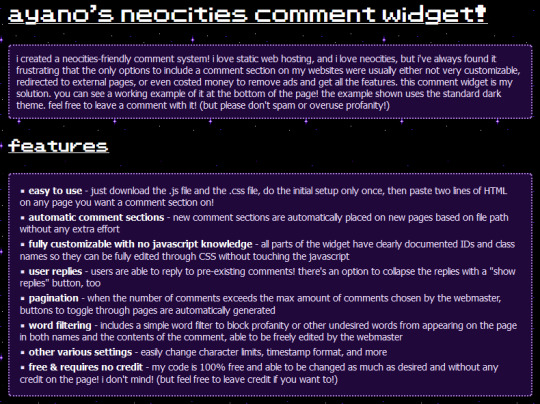
i made a free to use, 100% customizable comment widget for neocities users! it's really easy to install and add comment sections to any page. no more boring cbox or external guestbooks if you don't want them! and it comes with two themes to get you started!! please enjoy! you can find it here on my personal site!
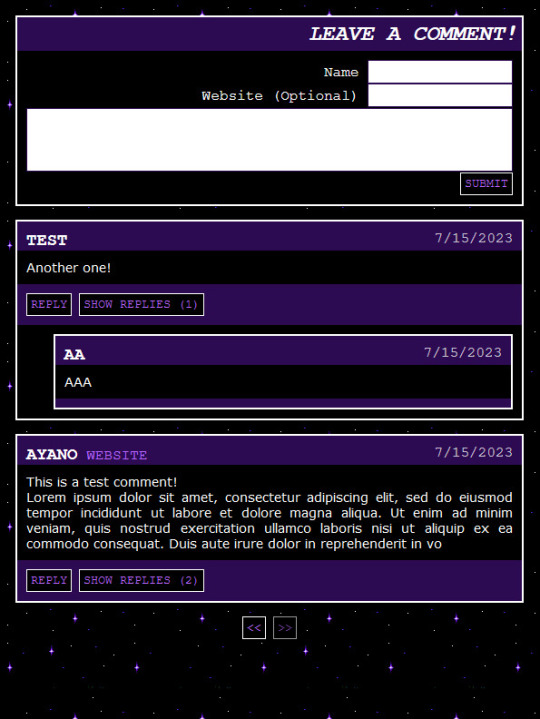
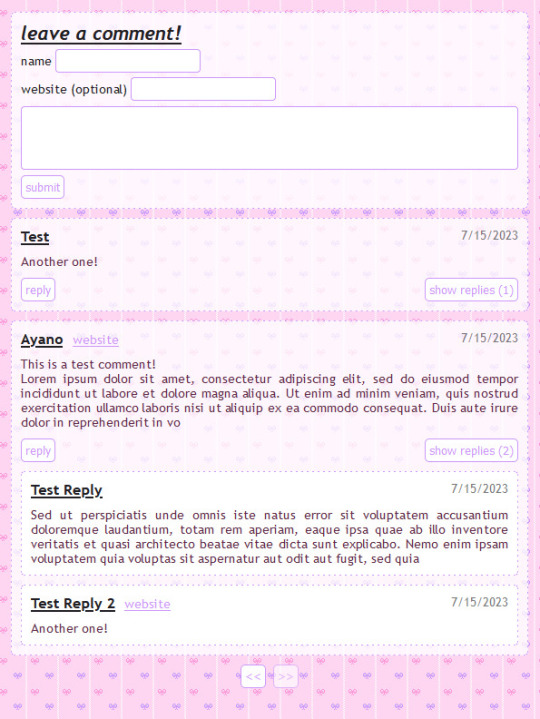
#neocities#indie web#old web#webdev#geocities#javascript#html css#ayano was here#ayano.txt#i'm so proud of this!! yayy
6K notes
·
View notes
Text
I might not be a programming language but at least I'm hot as fuck. You ever seen web pages without me? Fucking black and white times new roman? Talk about drab. javascript always gets all the hype but I'm definitely the pretty one in the family.
418 notes
·
View notes
Text
Coding By Time - Pro+
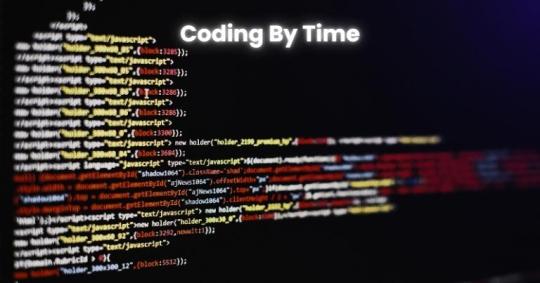
JAVA
Java, uzun yıllardan beri web geliştirmede yaygın olarak kullanılan popüler bir programlama dilidir. Web uygulamaları oluşturmak için sağlam ve ölçeklenebilir bir platform sunarak geliştiricilere üzerinde çalışabilecekleri çok çeşitli araçlar ve kitaplıklar sunar. Çok yönlülüğüne ek olarak Java, anlaşılması, bakımı ve değiştirilmesi kolay kod oluşturulmasını destekleyen Tek Sorumluluk İlkesine bağlılığıyla bilinir. Java ile geliştiriciler hızlı, güvenilir ve emniyetli web uygulamaları geliştirebilirler; bu da Java'yı web geliştirme için önemli bir araç haline getirir.
Spring
Spring Framework, Java tabanlı web uygulamaları oluşturmak için güçlü ve yaygın olarak kullanılan bir çerçevedir. Geliştiricilerin karmaşık uygulamaları kolaylıkla oluşturmasını kolaylaştıran bir dizi özellik ve araç sunar. Spring Framework kullanmanın avantajlarından bazıları şunlardır:
- Uygulama bileşenlerinin basitleştirilmiş konfigürasyonu ve yönetimi
- Diğer kütüphaneler ve çerçevelerle kolay entegrasyon
- Test etme ve hata ayıklama için güçlü destek
- Kapsamlı belgeler ve topluluk desteği
Spring Framework'ün en önemli özelliklerinden biri, geliştiricilerin URL isteklerini belirli eylemlerle eşlemelerine olanak tanıyan requestMapping'dir. Bu özellik, web uygulamalarının URL yapılarının yönetilmesini kolaylaştırarak genel kullanıcı deneyimini iyileştirir.

Spring Boot
Spring Boot, Spring Framework'ün üzerine inşa edilen ve geliştiricilere web uygulamaları oluşturma konusunda daha hızlı ve daha akıcı bir yaklaşım sağlayan bir araçtır. Spring Boot ile geliştiriciler minimum yapılandırmayla web uygulamaları ve mikro hizmetler oluşturabilir, bu da web geliştirmeye başlamayı kolaylaştırır. Spring Boot'u kullanmanın faydalarından bazıları şunlardır:
- Uygulama bileşenlerinin basitleştirilmiş konfigürasyonu ve yönetimi
- Geliştirilmiş performans ve ölçeklenebilirlik
- Diğer kütüphaneler ve çerçevelerle kolay entegrasyon
- Kapsamlı belgeler ve topluluk desteği
Spring Boot ayrıca önbelleğe alma desteği, reaktif akış API'si ve URL eşleme dahil olmak üzere web uygulaması geliştirmeye yönelik bir dizi özellik ve araç sunar. Kullanım kolaylığı ve kapsamlı araç seti sayesinde Spring Boot, hızlı ve verimli bir şekilde sağlam ve ölçeklenebilir web uygulamaları oluşturmak isteyen geliştiriciler için popüler bir seçim haline geldi. Ayrıca Visual Studio Code, çeşitli kullanışlı VS Code uzantılarıyla Spring Boot uygulama geliştiricileri için ideal bir hafif geliştirme ortamı sağlar. Bu gibi bilgilendirmeler ve geliştirmeler için web sitemizi ziyaret edebilirsiniz.
2K notes
·
View notes
Text

I made a character sheet to plot your OC's development over time! (There's supposed to be a character name in the big white space next to "over time" but it got eaten a little lmao)
You can use this for whatever you want, and you don't have to credit me. Feel free to change or edit anything you feel like. Please don't tag me if you credit me - just link to the original post.
Credits, explanations & a transparent version under the cut :D
Credits:
The actual image was made with the free NBOS character sheet creator, which is a sort of dated but free and solid text-layout sheet maker intended for ttrpg style character sheet creation.
Fonts used were Bisdak (titles) and Rockwell (body). Both are free! You can use them to fill it out if you like.
Inspired by a comment @maybe-solar-powered-calculator made on this other post about filling it out for characters at multiple points along their arcs. Thanks for putting the idea in my head :D
This is explicitly released under a CC0 1.0 deed, ie: you can do fucking whatever you want with it and I don't care and you don't have to tell anyone where you got it from and no one gets to stop you.
-
Last time I made one of these I got a bunch of questions on all manner of things, and I can never keep up, so I'm just appending a set of notes for how to use it and a glossary because I know some of these phrasings will be confusing.
Ignore or change anything you don't feel like works for you here. You can do whatever you want forever.
Suggested / intended use & general notes:
This sheet could work for something story-level, if you want. But it's really only good for individual arcs; if the character goes through multiple arcs in your story, then they're going to fit poorly here. In that case, you're probably better off doing versions for each arc, or just adapting this to a different format more suited to your thing.
Also, if your arc has a nontraditional structure - divorced from the typical "rising action - climax - conclusion" type of structure where there's a clear 'important turning point' - it may not work as well either.
The mindset section is meant to come at it from a 'golden mean' standpoint - that is, everything on either extreme of the slider is 'too much' and therefore bad. It's not bad-to-good! The far right side is a flaw too. They're only grouped the way they are on basis of the specific OCs I personally had in mind when I put it together.
Growth is labeled 'worse'-to-'better' but it means, like, active decrease in that area vs active increase; if nothing changes, it should stay at the center even if it sucks. The category is about contrasting changes, and sometimes changes are for the worse!
The entire sheet is very deliberately subjective. It should really be answered from the character's perspective - how they feel about it, not what's necessarily true. Technically you can do whatever you want and I can't stop you, but it's a better tool if you approach it from the point of view that the character may believe things that aren't true - that will define their behavior way more than the objective facts of the story.
-
Definitions:
This part is long as hell - recommend using ctrl+f to find the specific words you're stuck on. I defined everything.
General categories:
Mindset: how your character thinks about themself and how they act. Their understanding of their own approach to life. Attitude, viewpoint, decision-making process, that sort of thing.
Circumstances: the relationship between your character and the world around them. Where they are, what that place is like, and how they feel about it.
Growth: how the character and their impact - their attitude, their behavior, their immediate surroundings - changes over time.
Outset: the start of the character's arc.
Present: the 'center' of the arc. If you're planning something ahead of time and it hasn't 'happened' yet, then this is the near future.
End-game: where they are after the conclusion of the arc.
Mindset terms:
Center of the world: "If I have a problem, it's the only thing that matters to me." Self-centered, self-absorbed. Doesn't necessarily mean anything beyond that - they don't necessarily have to be unpleasant to be entirely focused on their own life.
my life isn't relevant: "Everyone else's problems are so significant, I don't pay any attention to my own". Someone who ignores or neglects their own life in service of some other thing, or doesn't consider their own behavior to have any real importance.
Only see enemies: Paranoid. Everyone's out to get them. Anyone who seems nonthreatening is hiding their potential for danger and everyone who seems threatening is a threat. The character must remain ever-vigilant, lest the cashier at the 7/11 suddenly stab them, or their best friend turn out to secretly be trying to poison them to death.
Only see friends: Naïve. Everyone is a good actor who wishes everyone else well, and if they don't seem like they're acting from a place of kindness or care then you probably don't understand what they're up to. The character is pretty sure the stranger holding that knife is, like, someone to chat up maybe, they're clearly only hanging out in this dark alleyway because it's a nice spot and no other possible reason.
overthink everything: Ten thousand thoughts per every single action taken. Maybe they never get around to acting at all. They have to consider every possible outcome. What if by eating lunch they accidentally trigger the apocalypse?! Who's going to think about these things if not them?!?!?!
impulsive to action: Act first, think never. What do you mean "consequences of actions"?
Unilateral decisions: "I will make every choice and no one else's opinions or thoughts are relevant". Discounts outside suggestions. Firmly convinced that they know best in any situation, and will brook no disagreement with their views when it comes to actually doing things.
Command me, please: "I don't know what to do and I don't know what to even start with, someone please tell me what to think". No confidence in their own views. Will not make any decisions unless forced and even then will beg someone else to please tell them what to do. Has no idea what's best and is pretty sure anyone else will have a better idea.
can't ask for help: No one will ever help the character; they have to do everything themself, even the things other people have repeatedly offered to do for them and have much more experience with. Doesn't necessarily mean that no one will help them or that they are explicitly barred by some real-world circumstance; just that, for whatever reason, they refuse to ask for help. This is an attitude thing - will they ever reach out? No? Then they're here.
too reliant on others: Have they ever solved a problem alone? Do they believe they're even capable of doing so? The character all the way at this end of the scale absolutely never expects to be able to do anything themself, has no trust in their ability to solve a problem, and needs someone else to come save them from it. The kind of person who needs ChatGPT to do their homework. Again - doesn't actually mean anyone will help them, or that the people they're relying on are reliable - just that they think they are helpless without ... well, help.
Weapon maker: This has to do with problem-solving strategies and not actual weapons. The weapon-maker is a character who views every situation as a conflict that cannot be de-escalated or solved by cooperation, and responds appropriately. The most fundamental weapon maker character turns everything into an argument, a fight, a war, etc. There are a bunch of other responses to conflict, though - they might avoid problems that need solving because they avoid conflict generally too. Fundamentally what you want to answer here is: when they see a locked box and they don't have the key, do they respond to it the same way they'd respond to someone telling them "you can't open this box"? And how do they respond to that? Typical weapon-maker approaches: - brute-force the box open or try and then give up if it doesn't work; and also get into an argument that might turn physical with the hypothetical person - shrug and give up immediately, in both situations so on and so forth. Another hallmark is that they kind of suck at problem-solving and give up if brute-forcing a problem doesn't work. This is not someone who is picking locks unless someone else told them to - they have one solution, it's to make everything into a conflict, and then to win that conflict by beating them or to give up because they think they'll lose.
Tool maker: This person approaches every situation like it's a puzzle, not a fight - up to and including actual fights. Tool-maker characters generally assume that a situation can be solved by just finding the right approach and doing it the clever way. There's the same fundamental question as above - if your character sees a locked box and has no key, would they approach it differently than someone telling them they're not allowed to open the box? 'Typical' tool-maker approaches: - I can trick the person into giving me the key by saying the right things, and I can also pick the lock because fundamentally there are 'right answers' to both of these - If i make friends with this person, they might change their mind, because now we're cooperating. I can still pick the lock because there are 'right answers' there. - The person has a reason for wanting me not to open the box, so I can definitely figure out what that is and solve the reason so then they'll let me open it. I can take whatever it is even if they really want to keep it if I just find the right answer. I'm going to break this box into little pieces because that's the easiest way to get into it but I could probably open it some other way if that wouldn't work.
A note - the center of this bar is someone who generally has different responses to different kinds of situations - like, in the box example, they'd approach the box and the person with two different general attitudes and processes - but generally responds to those situations using the same kind of decision-making process for each category every time. Most people are nowhere near either extreme. Characters tend to be classifiable into weapon-maker and tool-maker because they are fictional and it's easier to define one kind of approach than many. Approximately average approaches: - pick the lock if no one's around, but give up if someone is there because someone telling me not to open the box is a conflict i think i'll lose but a locked box is just a puzzle that i can solve - argue with the person, but give up on the box, because they're approaching the box as a puzzle and they don't think they have the skill to get into it, but the person is someone who can be convinced or bullied into handing over the key
I made this particular dichotomy up, which is why I think I get a lot of questions on it whenever I put it into anything, but I also don't know of any other snappy way to describe this sort of thought or approach variance, and it's genuinely useful for character writing in my opinion.
Pessimist spot-finder: Generally a downer but not necessarily. This kind of character just approaches everything with a close eye for problems, issues, reasons to find fault. If they're miserable, it might be why, but like, they can be a cheerful spot-finder if you want, I just wanted to get at "the glass is half empty" and "the glass is half full" more than anything.
Optimist upside fan: The opposite. "The glass is half full". If there are problems, they can find something about them that's not so frustrating or bad to focus on. Pretty damn good at overlooking minor issues if there's no reason to fixate on them. Not necessarily cheerful.
Abysmal company: could not give less of a damn about treating people the way they 'should' be treated. Maybe they take pride in that. Maybe they just think it's irrelevant. Either way, they know they treat people badly and they don't see any reason to stop. Does not necessarily mean that they treat people badly if they think they're doing the right thing and are wrong. Doesn't mean they're actually pleasant or unpleasant to hang out with, either, unless you really want it to mean that.
Decent to others: treats people well as a matter of course, or at least they sure think they do. Makes an effort. Would probably care and/or consider changing their behavior if someone said they were treating someone poorly. As before - they can be completely un-self-aware and just think they're doing right by people while treating them completely horribly.
Morality is irrelevant: 'abysmal company' for broader approaches to life and problems. Maybe they just know they're myopic and don't think other people's problems matter. Maybe they just gave up on trying to differentiate between 'good' and 'bad' and outsourced it to someone else or stopped paying any attention. Maybe they just like to take morally unjust actions and can't be bothered giving a damn when someone points out that they're morally unjust, or maybe they're proud of it. Kind of a villain trait generally, but not necessarily - it doesn't have to mean they act badly, just that they don't care if they do. Also, this is about how they choose their own actions and view their own behavior. They can think morality is relevant for other people as long as they ignore it when they act themself.
Always in the right: feels morally righteous in every decision they make. Standard superhero type of trait. Doesn't necessarily pass judgement on others, doesn't necessarily act well according to everyone's moral code (see: blue and orange morality), but they are extremely principled and will never deviate from the moral code they personally believe in. And they do genuinely believe in it.
Circumstances terms:
Generally terrible to generally excellent: how subjectively decent is your character's situation, overall? If they think everything is horrible, but the situation is charmed to everyone except them, then it's generally terrible.
Need for changes to passive tolerance: will they do something about it? Do they feel like they have to?
No agency in action to decisions are huge: agency being "how much power do I have to make changes here?", this just asks how much they have. No agency means that, no matter what they do, nothing will happen - they might be locked in a cage or somehow otherwise completely unable to use any sort of power at all, even the power of just leaving. The other end of the spectrum is where every decision the character makes makes a huge difference, not just to themself but to everyone around them as well. They can start wars, they can have anyone they want killed, they can do anything whenever they feel like it. If they think they have no agency even though they do actually have agency, they don't have agency here. If they feel like they have all the agency in the world and can do anything, then they do even if it's not true. It's perceptual again.
Stakes are deadly to mistakes solvable: what are the consequences of failure? Will you die, will you lose status you can't afford to lose, will you lose belongings, will you have to apologize, will nothing happen at all? Mistakes solvable is where they think every mistake is solvable forever - the character pushes someone through a woodchipper and they come out and to fix it, maybe an apology has to occur, but not much else. Does not necessarily mean no one gets hurt or killed as long as the character thinks there are no permanent consequences. This is the most important one on this section to keep subjective because it will greatly influence how your character approaches situations. A character who thinks everything is deadly-stakes may go to cartoonishly-extreme lengths to avoid turning a report in a day late. A character who thinks all mistakes are always solvable may push someone through a woodchipper and then just assume they can say they're sorry and it'll all go away. The setting and their approach do not need to be applicable.
Needs go unmet to attended with care: how do the people around them treat them? Do they pay attention when the character needs something, or do they ignore it? Does the character have to do everything themself around here, or are there people who will help out?
Regarded poorly to regarded well: how do they think other people see them? Are they respected, are they liked, or are they disliked? Do people broadly trust them or are they pretty sure everyone regards them with suspicion?
Nothing changes to changes in seconds: functionally the 'stability' meter of your setting - is the situation generally stable, or are things constantly changing? Does your character feel like every five minutes, there's a new problem that needs dealing with, or do they feel like nothing has ever happened ever?
Growth terms:
Changes in place: do they go somewhere else? Does the physical setting otherwise change (eg; earthquake, war, etc) ? Are there any other reasons that the 'vibe' or 'experience' of the place is different from before?
Change in power: does the character's percieved agency (see: no agency in action to decisions are huge) change? Alternately you can use it if they've gained or lost power in some percieved way (deposed, assigned a commanding position, etc).
Change in bonds: do their relationships with people change? Have they made new friends, lost old friends, changed the nature of their relationships with friends or partners, etc?
Change in beliefs: straightforwardly, have their beliefs, morals, etc, changed?
Change in hurts: have they undergone some horrible experience? Do they have past trauma from some pre-arc horrible experience they're healing from and/or discovering they're more powerfully subject to? Did they experience a physical injury that they're recovering from or which materially changed their life? Did something recent dredge up old issues? So on and so forth.
Change in hopes: Do their desires for the future look the way they used to? Do they care about different things now? This is something the character is not actively working for, but may be tied to actual goals.
Change in fears: are they overcoming fears? Growing past them? Gaining new ones? Are they scared of shit different from how they used to be?
Change in goals: Not the same as a hope because it needs to have a specific, achievable outcome the character is actively working toward. Do those material goals look different? Perhaps they no longer want to work against something, maybe they didn't have any goals and now they do. Or maybe they've realized the goal is impossible, or something has happened to make that goal unachieveable. Whatever it is, if there's a change, it's a change.
Change in self-awareness: their beliefs about who they are and what they're like, and what their circumstances are. Have they gotten more self-aware, have they gotten less self-aware, or has nothing changed?
Change in relationships: their relationships' overall health and resilience, as far as the character is concerned - which doesn't mean they're necessarily good, just that the character thinks they're how they're supposed to be. Have they improved? Have they gotten worse? Have they not changed?
Change in knowledge: do they feel like they know more about the world, their place in it, the people around them, etc? Not necessarily how to do things - just general information and awareness.
Change in social standing: how does others' regard for the character change over this part of their arc? Do people like them more or less? Are they respected more or less than before? Has nothing changed? And so on.
Change in skills and abilities: do they feel more skilled than they were before? Do they feel like they know how to do as many things as before? Again - not necessarily rooted in reality - a classic example of a character being wrong about this is a 'big fish in a small pond' character who used to be the high school sports star going to college on a sports scholarship and discovering they're not the best any more, and suddenly feeling like they're the worst - when they're better than they've ever been in an objective light. Use a subjective viewpoint for this.
Change in agency in life: how does the character's percieved agency change? Do their decisions matter less now than ever? Do their actions make way more happen than before? (See: no agency in action vs decisions are huge)
Change in outlook: Here's the upper/downer part. Are they more or less hopeful for the future? Do they think things are more terrible now? Are things improving as far as they're concerned? Or has that not changed?
Change in goal progress: how do they feel like they're progressing on the goals they've set for themself? Are they getting further and further away? Are they getting closer?
If some of this doesn't make sense and you want a clarification, you will have to tag me to get my attention, because I'm turning notifications for this post off the minute it leaves my immediate social circle.
Transparent version: (sorry you had to scroll so far)

#thank GOD we can just turn notifications off now so i wont have to delete this post#red rambles#also. if you want to follow me for this because someone reblogged it. Don't i make like one of these every [checks notes] 2 years#typically i just reblog a lot of nonsense and you will not enjoy it probably#im writing this like i expect it to take off because i do . Because i'm scared#character sheet#red makes memes#<- because those are the tags i used on the last ones#i dont really think this quite qualifies#oc reference#what fucking tags are there for this sort of thing lmao#ttrpg sheet#ttrpg tools#i know people want this for ttrpgs. if everyone used the other thing for ttrpgs.#oc tools#i was gonna make a fillable version but i gave up. someone made a cool one of the ancient blorbo sheet but tbh i have no idea what the fuck#they're doing with js modules (<- everyone point and laugh i dont know javascript LMAO) and i dont feel like figuring it out#hey guys its midnight im out of post jail. image upon ye#ALSO you CAN put your sheet on the post i dont like. Care#like i said a zillion times. I will be turning notifications off if too many people say things#but until i get really sick of everyone filling things out the same way im curious#you understand.
212 notes
·
View notes
Text

it would be so good to be a dragon and get pats and sleep all day without a care....
everyone talks about being a fierce dragon that terrorizes villages and eats humans and that's all awesome! would love to do that!! but this dragon is way more into the simple life, getting headpats lounging around without worrying about object oriented programming and taxes
#wyv's art#maybe if i was just a dumbass dragon just lazing about i wouldn't have the need for caffeine#ok this one is a quickie where i don't think about quality#also goddamn my traditional art skills have deteriorated a bit. damn you responsibilities and lack of time#it's what i can do with this insomnia#dragonkin#dragon furry#feral art#dragonposting#yes. still struggling with JavaScript.#shouldn't have picked it up and done kotlin instead
187 notes
·
View notes
Text

The 100% Good Twine SugarCube Guide!
The 100% Good Twine SugarCube Guide is a coding guide for the SugarCube format of Twine. It is meant as an alternative to the SugarCube documentation, with further explanations, interactive examples, and organised by difficulty. The goal of this guide is to make the learning curve for new SugarCube user less steep, and provide a comprehensive and wide look over the format.
VIEW / DOWNLOAD THE GUIDE!!!!
The Guide is compartmentalised in (currently) four categories:
THE BASICS or the absolute basics to start with SugarCube. No need for extra knowledge. Just the base needed to make something.
THE BASICS + adding interactivity, and creating a fully rounded IF game May require a bit of CSS knowledge (formatting rules)
INTERMEDIATE MODE adding more customisation and complex code Will probably require some CSS knowledge, and maybe some JavaScript
ADVANCE USE the most complex macros and APIs Will surely require some JavaScript/jQuery knowledge
Note: The Advanced Use includes all the APIs, macros, and methods not covered by the previous categories. This includes code requiring very advance knowledge of JavaScript/jQuery to be used properly.
Each category explains many aspects of the format, tailored to a specific level of the user. More simpler explanations and examples are available in earlier chapters, compared to the later ones.
If something is unclear, you found a mistake, you would like more examples in the guide, or would like a feature covered, let me know!
The Guide currently covers all macros (as of SugarCube v.2.37.3), all functions and methods, and APIs. It touches upon the use of HTML, CSS, JavaScript and jQuery, when relevant. It also discusses aspects of accessibility.
The Guides also provides a list of further resources, for the different coding languages.
The Guide is available in a downloadable form for offline view:
HTML file that can be opened in Twine
.tw file that can be opened in Twine
source code, separating the chapters, .js and .css files
GITHUB REPO | RAISE AN ISSUE | TWINE RESOURCES TWEEGO | TEMPLATES | CSCRIPT 2 SG GUIDE
Twine® is an “an open-source tool for telling interactive, non-linear stories” originally created by Chris Klimas maintained in several different repositories (Twinery.org). Twine is also a registered trademark of the Interactive Fiction Technology Foundation.
SugarCube is a free (gratis and libre) coding format for Twine/Twee created and maintained by TME.
VIEW / DOWNLOAD THE GUIDE!!!!
As of this release (v2.0.0), it is up to date with the version 2.37.3. If you are looking for the guide covering SugarCube 2.36.1, you can find it on my GitHub.
Note: the Guide is now complete. There won't be further substantial updates.
#the 100% Good Twine SugarCube Guide#template#templates#guide#coding in twine#twine#coding#HTML#JavaScript#CSS#macros#interactive fiction#sugarcube#interactive games#k thanks. i don't need any more reminders that sugarcube update and that I NEED TO UPDATE MY RESOURCES#i KNOW#manonamora
505 notes
·
View notes
Text
Essentials You Need to Become a Web Developer
HTML, CSS, and JavaScript Mastery
Text Editor/Integrated Development Environment (IDE): Popular choices include Visual Studio Code, Sublime Text.
Version Control/Git: Platforms like GitHub, GitLab, and Bitbucket allow you to track changes, collaborate with others, and contribute to open-source projects.
Responsive Web Design Skills: Learn CSS frameworks like Bootstrap or Flexbox and master media queries
Understanding of Web Browsers: Familiarize yourself with browser developer tools for debugging and testing your code.
Front-End Frameworks: for example : React, Angular, or Vue.js are powerful tools for building dynamic and interactive web applications.
Back-End Development Skills: Understanding server-side programming languages (e.g., Node.js, Python, Ruby , php) and databases (e.g., MySQL, MongoDB)
Web Hosting and Deployment Knowledge: Platforms like Heroku, Vercel , Netlify, or AWS can help simplify this process.
Basic DevOps and CI/CD Understanding
Soft Skills and Problem-Solving: Effective communication, teamwork, and problem-solving skills
Confidence in Yourself: Confidence is a powerful asset. Believe in your abilities, and don't be afraid to take on challenging projects. The more you trust yourself, the more you'll be able to tackle complex coding tasks and overcome obstacles with determination.
#code#codeblr#css#html#javascript#java development company#python#studyblr#progblr#programming#comp sci#web design#web developers#web development#website design#webdev#website#tech#html css#learn to code
2K notes
·
View notes
Text
“I Need Your Support to Continue My Studies and Build My Future from Gaza🍉🍉
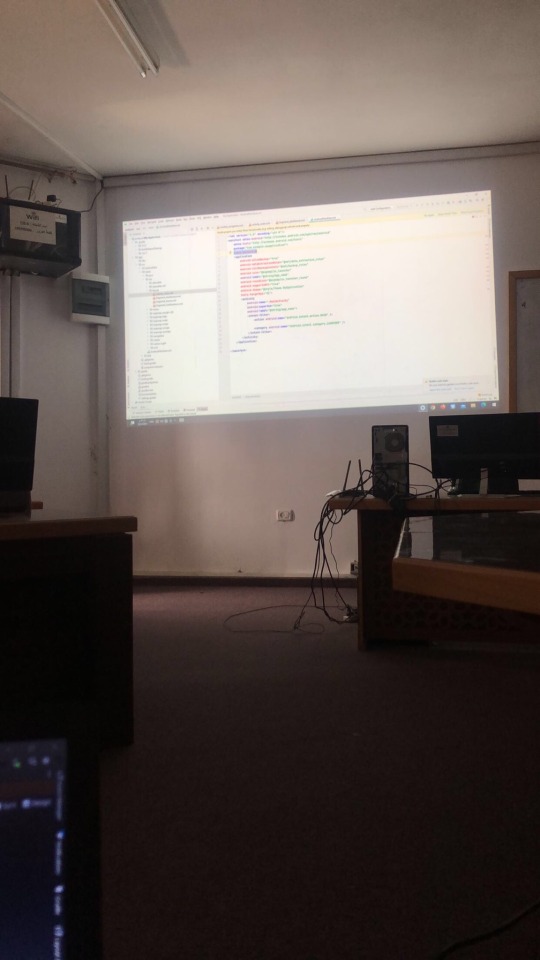

My name is Mahmoud Naeem Abu Hatab, from Gaza.
I am a university student majoring in Software and Databases at Al-Azhar University. Since the beginning of my academic journey, I have been passionate about User Experience (UX) and User Interface (UI) design, as well as website development. These fields inspire me, and I dream of advancing my skills and building a professional career in them.


Unfortunately, during the recent war, I lost my laptop, which was essential for both my studies and work. I was forced to flee my home and relocate to southern Gaza due to the difficult circumstances. Despite my efforts to replace my laptop, the financial situation has made it impossible to afford a new one.
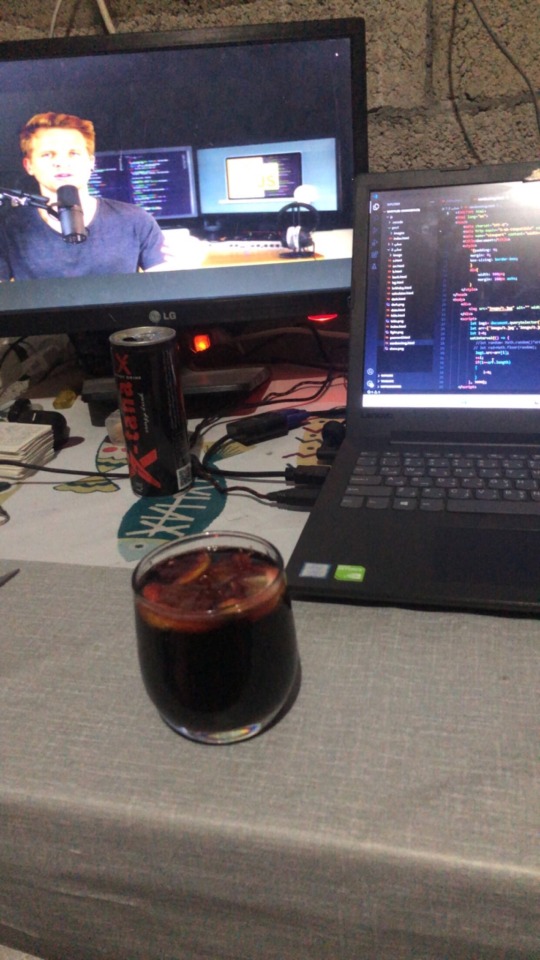

Without a laptop, continuing my studies or seeking job opportunities in programming and design has become extremely challenging. This directly affects my academic progress and future career.
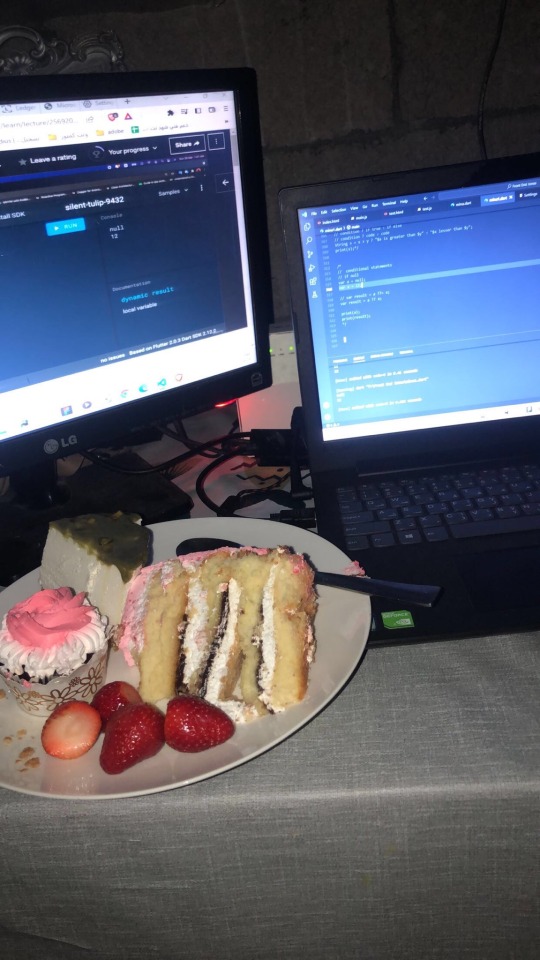
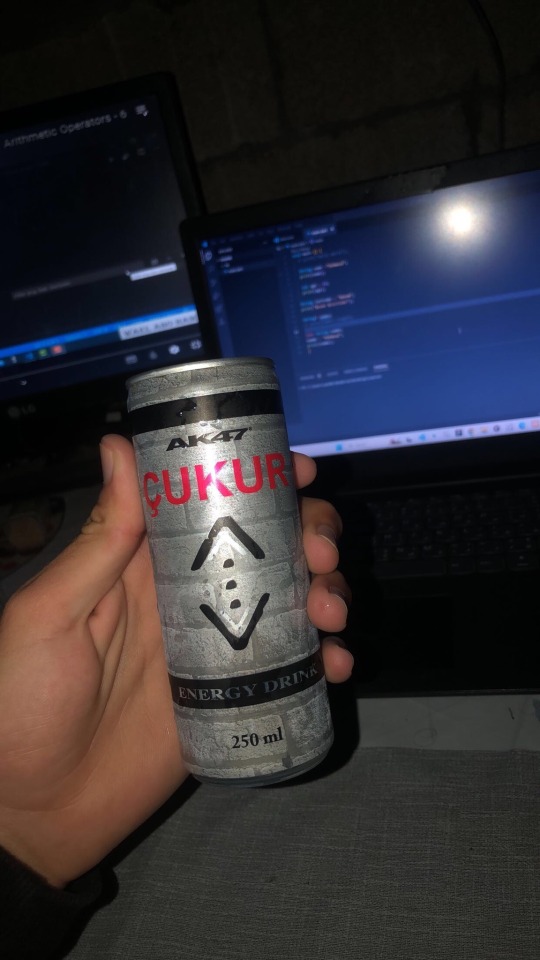
Today, I am reaching out to ask for your support to help me purchase a new laptop. Having a laptop would allow me to resume my studies and work on programming and design projects that are crucial for improving my skills. It is a vital step towards completing my education and pursuing my dream of becoming a professional in programming and UX/UI design.
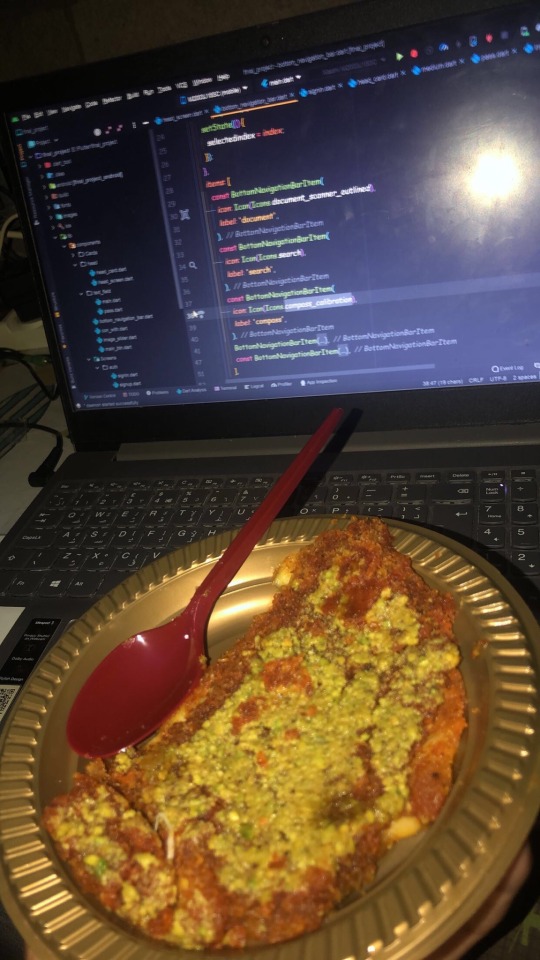
I know that the situation in Gaza is difficult, but I believe education is the only path to building a better future for myself and my family. If you are able to contribute any amount to help me get a new laptop, it would be a real opportunity for me to get back on track academically and professionally.
I am determined to keep learning and working despite the challenges, but I need your support to achieve this goal. Every donation or act of help, no matter how small, will make a significant difference in my life.
If you’d like to support me, you can donate through:
GoFundMe
OR
USDT

If you can assist in any way, please don’t hesitate to reach out to me.
Thank you for your support and kindness! 🌿
@gaza-evacuation-funds @appsa @nabulsi27 @palestinegenocide @orblesbian @palebluebutler @pallasisme @fallahifag-deactivated20240722 @vakarians-babe @sayruq @ @plomegranate @riding-with-the-wild-hunt @queerstudiesnatural @tamamita @apollos-boyfriend @riding-with-the-wild-hunt @queerstudiesnatural @palestinegenocide @sar-soor @akajustmerry @annoyingloudmicrowavecultist @feluka @marnosc @flower-tea-fairies @flower-tea-fairies @tsaricides @tsaricides @belleandsaintsebastian @ear-motif @brutaliakent @raelyn-dreams @troythecatfish @4ft10tvlandfangirl @90-ghost @paper-mario-wiki @nabulsi @prisonhannibal @beepiesheepie @walcutt @schoolhater98 @commissions4aid-international @sar-soor @zigcarnivorous@tododeku-or-bust@turtletoria @brutaliakhoa @flower-tea-fairies @schoolhater @baby-girl-aaron-dessner @sayruq @omiteo777 @malcriada @neptunerings @bat-luun @kaneverse @nightowlssleep @staretes @friendshapedplant @soon-palestine @aria-ashryver @heritageposts @magnus-rhymes-with-swagness-blog @khangerinedreams @kordeliiius @mazzikah @feluka @dlxxv-vetted-donations @girlinafairytale @a-shade-of-blue @vakarians-babe @babygoatsandfriends @self-hating-zionist @mangocheesecakes @dlxxv-vetted-donations @gazaboovintage @gazavetters @wellwaterhysteria @sar-soor @applebunch @irhabiya @sayruq @xxx-sparkydemon-xxx @junglejim4322 @reptilianspecies @dr-lapdance @tamamita @cantsayidont @fairweathermyth @dear-indies @eruthiawenluin @katealot @lenasai @stalinistqueens @ayeshjourney @gaza-evacuation-funda @el-shab-hussein @irhabiya @nabulsi @ibtisams @dlxxv-vetted-donations @tododeku @a-shade-of-blue @gaza-relief-fund @catnapdreams @northgazaupdates @buttercuparry @stuckinapril
#voic of gaza#gaza#free palestine#palestine#free gaza#save gaza#save palestine#help gaza#help palestine#programming#studying#uxdesign#ui ux design#uidesign#ui#ux#user interface#user experience#figma#xd#web design#web development#web developers#mobile design#html#css#js#javascript#java#front end development
296 notes
·
View notes
Text

hyperfixated on this game so hard i tried to recreate ac syndicate's animus database using html css and js👍
i will make this responsive though, i've only started doing the frontend but i'll also start doing the backend as soon as i finish this
basically this is gonna be a website that will allow you to create a database of your assassin's creed OCs (btw this was inspired by @gwen-the-assassin's idea <33) and help you with worldbuilding and making AUs (i know the ac fanon wiki already exists for that but i wanted to make the experience of keeping a database more immersive u know....)
this might take a while to be completed, but I'll try to post updates on it as much as possible! if there are any programmers/web developers in the ac fandom that want to contribute to this project plsplspls DM me!!
actual pic of the database for comparison:

ik it's not entirely accurate but this is the simplest database in the game that i could recreate lmao
also code snippets just cuz (+ me crashing out)


#u know what#i might just pass this for my database systems class#assassin's creed#assassin's creed syndicate#ac syndicate#animus#video games#gaming#programming#coding#codeblr#web development#ui ux design#html css#javascript
161 notes
·
View notes
Text
in javascript world, two wrongs make a wrong, and two rights make a... 2?
#programming#i know all other languages also do this but listen#it's always funny to dunk on javascript
135 notes
·
View notes
Text

TERMINUS OS- DEEP WEB HIDDEN SERVICE THEMED NEOCITIES TEMPLATE
FEATURES: -LOADING SCREEN -GLITCHING TEXT -SUBTLE ANIMATIONS -SMOOTH TRANSITIONS
MADE BY NUMBPILLED ON KO-FI
LIVE PREVIEW
DOWNLOAD HERE
#neocities template#cybercore#css#html#html css#htmlcoding#old web graphics#neocities#matrix#template#websites#neocities theme#neocities themes#html theme#htmltutorial#javascript#landingpage#deep web#hacker terminal#glitch#glitching#retrowave#web resources#download#psicodelia#template download#neocities resources#old web#web graphics#neocities graphics
175 notes
·
View notes